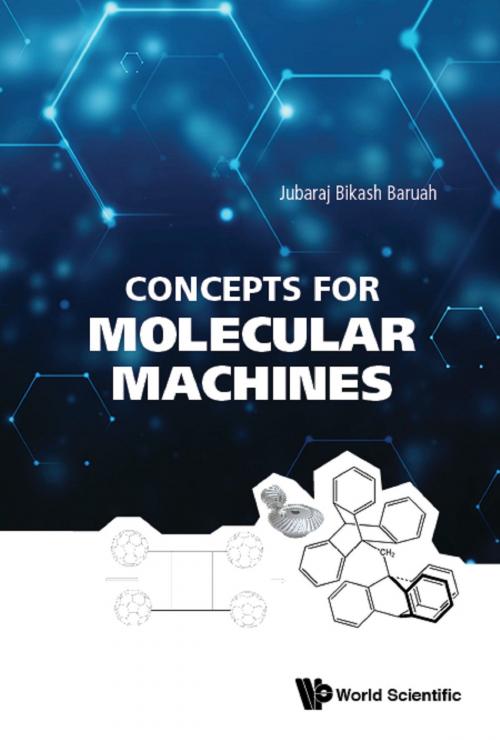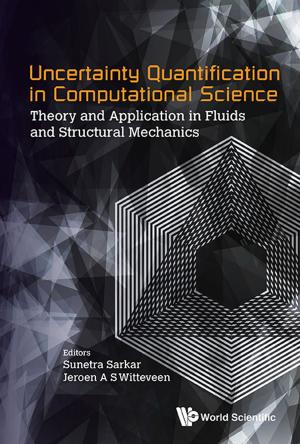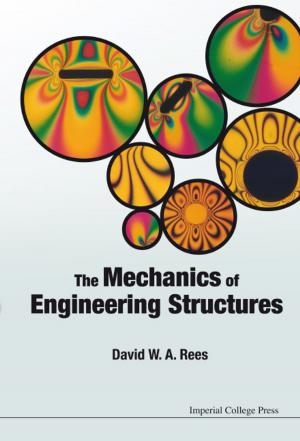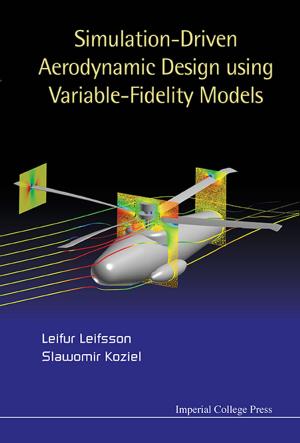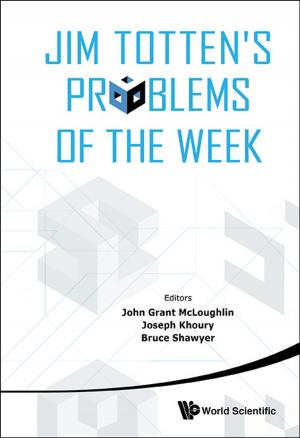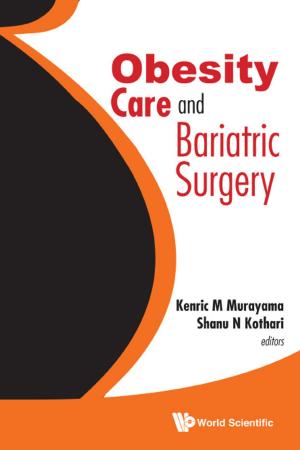Concepts for Molecular Machines
Nonfiction, Science & Nature, Science, Biological Sciences, Biochemistry, Chemistry| Author: | Jubaraj Bikash Baruah | ISBN: | 9789813223721 |
| Publisher: | World Scientific Publishing Company | Publication: | August 11, 2017 |
| Imprint: | WSPC | Language: | English |
| Author: | Jubaraj Bikash Baruah |
| ISBN: | 9789813223721 |
| Publisher: | World Scientific Publishing Company |
| Publication: | August 11, 2017 |
| Imprint: | WSPC |
| Language: | English |
Actions of living beings at any stage of life are of general interest; molecular machines can be a replica of such activities. Stimuli guided movements and shape changes of molecules are one of the rapidly developing areas on which fundamental principles of molecular machine banks. Thus, the understanding of intriguing concepts of molecular machines is essential. Miniaturization, efficiency, stability and robustness in performing activities are some of the important points associated with molecular machines. Using molecular machines for practical purposes will further strengthen fundamentals of science and technology and also guide future market economy. Recent advent of techniques to handle materials at microscopic level has benefited the topic of molecular machines and is ready to be taken to a higher level as compared to other competing topics of science and technology. Molecular machines is a contemporary hot topic with future scope. The Nobel Prize in the year 2016 was shared by three scientists Prof. Ben Feringa, Prof. J Fraser Stoddart and Prof. Jean-Pierre Sauvage for their contribution to the topic. This book on molecular machines is aimed to cater to the need of graduate students and researchers by providing the fundamental aspects on molecular machines.
Contents:
-
Introduction to Molecular Machines:
- Preliminary Aspects of a Conventional Machine
- Miniaturization of Machines
- Molecular Machine
- Terminology in Molecular Machines
- Bio-inspired Concepts in the Development of Molecular Machines
- Energetics and States of Molecular Machines
- Biological Molecular Machines
-
Operational Aspects of Molecular Machines:
- Background
- Structural Equilibration
- Molecular Machine Design
-
Interlocked Systems as Molecular Machines:
- Principles for Formation of Interlocked Molecules
- Catenanes
- Rotaxanes
- Thermodynamics of Interlocked Systems
- Shuttling Motion in Rotaxanes
- Switching in Rotaxanes
- Knots
- Controllable Properties in Rotaxanes Relating to Molecular Machines
- Molecular Machine for Peptide Synthesis
- A Molecular Elevator
- Logic Gate Based on Rotaxane
-
Photochemically and Electrochemically Guided Molecular Machines:
- Principles of Photochemical Switching
- Electrochemically Driven Machines
-
Artificial Molecular Machine Based on DNA:
- Principles
- DNA Tweezers
- DNA Walker
- DNA Based Molecular Gear
- pH Dependent DNA Nano-machine
- Molecular Assembler
- Trends of Study
Readership: Chemists, biochemists, glycobiologists, materials scientists, students in biochemistry and biology.
Key Features:
- Presently, there is no standard textbook that discusses the underlying concepts of molecular machines in an integrated manner
- Available costly reviews and monographs are very specialized and are directed towards specific portion of the topic
- This book makes a wider mark and will emerge as a long-standing unique book with its original way of presentation and will sustain long
Actions of living beings at any stage of life are of general interest; molecular machines can be a replica of such activities. Stimuli guided movements and shape changes of molecules are one of the rapidly developing areas on which fundamental principles of molecular machine banks. Thus, the understanding of intriguing concepts of molecular machines is essential. Miniaturization, efficiency, stability and robustness in performing activities are some of the important points associated with molecular machines. Using molecular machines for practical purposes will further strengthen fundamentals of science and technology and also guide future market economy. Recent advent of techniques to handle materials at microscopic level has benefited the topic of molecular machines and is ready to be taken to a higher level as compared to other competing topics of science and technology. Molecular machines is a contemporary hot topic with future scope. The Nobel Prize in the year 2016 was shared by three scientists Prof. Ben Feringa, Prof. J Fraser Stoddart and Prof. Jean-Pierre Sauvage for their contribution to the topic. This book on molecular machines is aimed to cater to the need of graduate students and researchers by providing the fundamental aspects on molecular machines.
Contents:
-
Introduction to Molecular Machines:
- Preliminary Aspects of a Conventional Machine
- Miniaturization of Machines
- Molecular Machine
- Terminology in Molecular Machines
- Bio-inspired Concepts in the Development of Molecular Machines
- Energetics and States of Molecular Machines
- Biological Molecular Machines
-
Operational Aspects of Molecular Machines:
- Background
- Structural Equilibration
- Molecular Machine Design
-
Interlocked Systems as Molecular Machines:
- Principles for Formation of Interlocked Molecules
- Catenanes
- Rotaxanes
- Thermodynamics of Interlocked Systems
- Shuttling Motion in Rotaxanes
- Switching in Rotaxanes
- Knots
- Controllable Properties in Rotaxanes Relating to Molecular Machines
- Molecular Machine for Peptide Synthesis
- A Molecular Elevator
- Logic Gate Based on Rotaxane
-
Photochemically and Electrochemically Guided Molecular Machines:
- Principles of Photochemical Switching
- Electrochemically Driven Machines
-
Artificial Molecular Machine Based on DNA:
- Principles
- DNA Tweezers
- DNA Walker
- DNA Based Molecular Gear
- pH Dependent DNA Nano-machine
- Molecular Assembler
- Trends of Study
Readership: Chemists, biochemists, glycobiologists, materials scientists, students in biochemistry and biology.
Key Features:
- Presently, there is no standard textbook that discusses the underlying concepts of molecular machines in an integrated manner
- Available costly reviews and monographs are very specialized and are directed towards specific portion of the topic
- This book makes a wider mark and will emerge as a long-standing unique book with its original way of presentation and will sustain long
